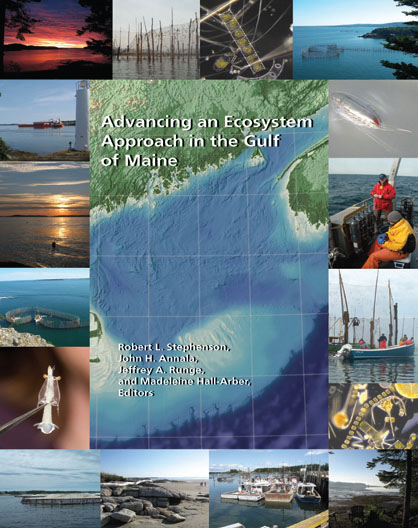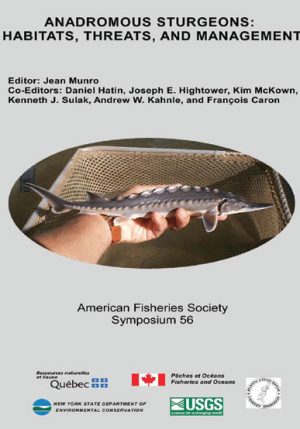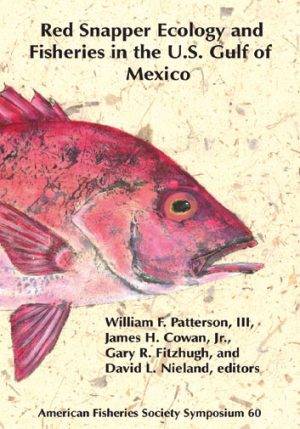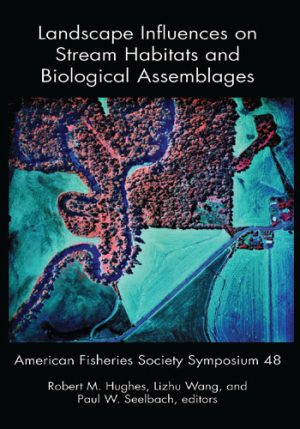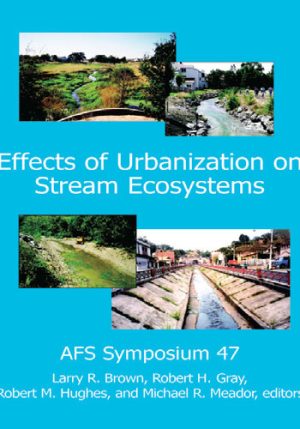Description
Robert Stephenson, John Annala, Jeffrey Runge, and Madeleine Hall-Arber, editors
415 pages, paper
Published by the American Fisheries Society
Publication date: October 2012
ISBN: 978-1-934874-30-1
doi: https://doi.org/10.47886/9781934874301
Summary
The Gulf of Maine (GOM) is arguably one of the best studied marine ecosystems in the world. Interest in its physical environment, fisheries, and Canada/USA boundary have resulted in considerable research attention for more than a century. The GOM is also highly managed by two nations with a commitment to implementing an ecosystem approach to management.
The papers in this book review the management and policy tools and approaches required to implement integrated policy and management in the GOM; synthesize the current ecological and oceanographic understanding of the GOM, and the social, economic, and cultural interactions within the Gulf; assess anthropogenic and external influences on the Gulf ecosystem; and examine the science required to observe and predict changes in the GOM ecosystem, along with strategies to implement an ecosystem approach to management.
CONTENTS
Introduction
Ecosystem Services in the Gulf of Maine (Stephen S. Hale and Maxine Westhead)
Linking Ecosystem Health and Services to Inform Marine Ecosystem-Based Management (Katie K. Arkema, and Jameal F. Samhouri)
Peopling the Marine Ecosystem (Bonnie J. McCay)
We Really Can Get There from Here: Important Steps toward Ecosystem-Based Fishery Management (Sally McGee)
Fishermen without Borders (Jean Guy dEntrement)
Tools for Integrated Policy and Management in the Gulf of Maine: A Summary of Major Advancements Since 1996 (Maxine Westhead)
State-of-the-Environment Reporting for the Gulf of Maine (Jay Walmsley)
Collaborative Learning Strategies to Overcome Barriers to Ecosystem Management in Coastal Watersheds of the Gulf of Maine (Christine Baumann Feurt)
Linking Science to Management and Policy through Strategic Communication (Verna DeLauer, Susan Ryan, Ivar Babb, Peter Taylor, and Pam DiBona)
Observations and Analysis of Change in the Gulf of Maine: Present Status and Future Directions (Jeffrey A. Runge)
Zooplankton of the Gulf of MaineA Changing Perspective (Jonathan A. Hare and Joseph Kane)
Status of the Northeast U.S. Continental Shelf Large Marine Ecosystem: An Indicator-Based Approach (Michael J. Fogarty, Kevin D. Friedland, Laurel Col, Robert Gamble, Jonathan Hare, Kimberly Hyde, Jason S. Link, Sean Lucey, Hui Liu, Janet Nye, William J. Overholtz, David Richardson, B. Rountree, and Maureen Taylor)
Spatial Patterns of Subtidal Benthic Invertebrates and Environmental Factors in the Nearshore Gulf of Maine (Stephen S. Hale)
Regime Shift in the Gulf of Maine (Peter C. Smith, Neal R. Pettigrew, Philip Yeats, David W. Townsend, and Guoqi Han)
Zooplankton Monitoring in the Gulf of Maine: Past, Present, and Future (Catherine L. Johnson and Jonathan A. Hare)
Quantifying Watershed-Based Influences on the Gulf of Maine Ecosystem: The Saint John River Basin (Glenn Benoy, Eric Luiker, and Joseph Culp)
Anthropogenic and External Influences on the Gulf of Maine: Workshop Summary (Madeleine Hall-Arber, Judith Pederson, and Peter Wells)
Useable Pasts of Harvested Waters: The Working Role of American Fisheries History (Michael J. Chiarappa)
Advances in Understanding Ecosystem Structure and Function in the Gulf of Maine (Michael J. Fogarty, David W. Townsend, and Emily Klein)
Seafloor Mapping for Ecosystem Management in the Gulf of Maine (Jonathan H. Grabowski and Tracy Hart)
Ecosystem Modeling in the Gulf of Maine Region: Towards an Ecosystem Approach to Fisheries (Jason S. Link and Alida Bundy)
Managing for Migrants: The Gulf of Maine as a Global Hotspot for Long-Distance Migrants (Antony W. Diamond)
Stalk-Eyed Views of the Gulf of MaineThrough a Nepheloid Layer Dimly (Peter A. Jumars)
Results of a Collaborative Project to Observe Coastal Zooplankton and Ichthyoplankton Abundance and Diversity in the Western Gulf of Maine: 20032008 (Jeffrey A. Runge and Rebecca J. Jones)
Organismal Biology in the Age of Ecosystem-Based Management (Jacob P. Kritzer and Jamie M. Cournane)
Representation of Biodiversity Knowledge within Ecosystem-Based Management Approaches for the Gulf of Maine (Peter Lawton, Lewis S. Incze, and Sara L. Ellis)
Thermal Phenological Factors Affecting the Survival of Atlantic Salmon in the Gulf of Maine (Kevin D. Friedland, James P. Manning, and Jason S. Link)
A Perspective on Advancing Ecosystem Research for the Gulf of Maine (Robert L. Stephenson)


